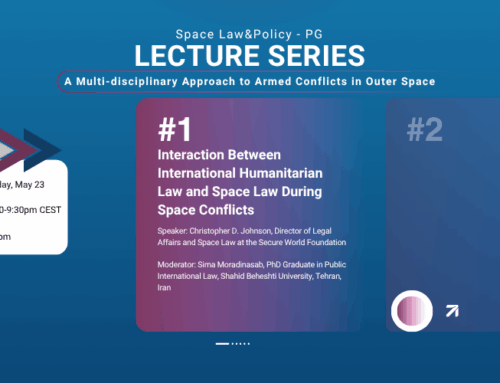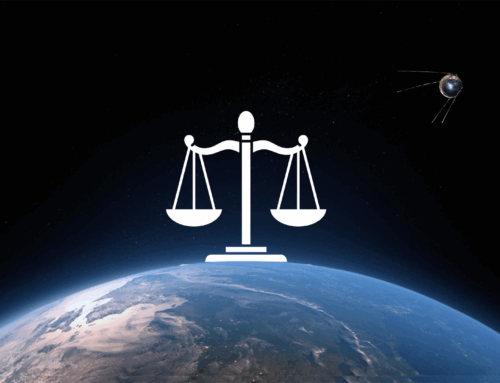“Through international cooperation and forward-thinking policies, we can harness the vast potential of space resources to serve all humanity while preserving space as a peaceful, shared domain for future generations.”
Introduction
Imagine a world where we mine asteroids for rare metals and establish colonies on the Moon and Mars. Space resource utilisation is no longer a distant dream. As our quest to explore and settle the cosmos intensifies, the need for robust legal frameworks to govern space activities has never been more critical. The surge in space missions, including lunar exploration, asteroid mining endeavours, and ambitious Mars mission plans, underscores the necessity for clear regulation to manage resource extraction, ensure fair access, and promote international cooperation.
National Approaches to Space Resource Utilisation
Several countries have enacted national legislation to regulate space resource utilisation, reflecting their individual ambitions in space exploration.
The United States, through the 2015 U.S. Commercial Space Launch Competitiveness Act, allows private entities to own and sell space resources, stimulating investment in space mining.
Similarly, Luxembourg’s ‘SpaceResources.lu’ initiative has established the country as a hub for space resource activities, offering legal certainty to companies involved in the exploration and use of space resources.
The UAE’s Federal Law 12 (2019) enables the commercial exploitation of space resources, while Japan’s Space Resources Act (2021) provides for the ownership of mined space resources by licensed companies.
While these national regulations promote space resource utilisation, they also highlight the need for a comprehensive international framework to ensure equitable access, sustainable practices, and cooperation beyond national interests.
The Need for a General Regulation and International Cooperation
Though these national regulations have spurred innovation and development, the absence of a unified international framework poses significant challenges. Article 2 of the Outer Space Treaty (OST) explicitly prohibits national appropriation of outer space, complicating efforts by individual states to grant ownership rights over space resources. Without a general framework, the conflicting interests of nations and private entities could lead to disputes over resource ownership, access, and exploitation.
Moreover, Article 3 of the OST links international environmental law with space exploration, stating that activities in space must be conducted in accordance with international law, including environmental protection. Space resource extraction poses substantial environmental risks, such as contamination or alteration of celestial bodies. An overarching legal framework is needed to address these concerns, ensuring that space resource activities adhere to global environmental standards.
The lack of ratification of the Moon Agreement, which specifically governs the utilisation of lunar resources, further illustrates the difficulties in achieving global consensus. As of 2024, only 17 countries have ratified the Moon Agreement, showing the reluctance of major spacefaring nations to commit to a common framework. However, a global agreement on space resources is critical to ensuring that all countries, not just the technologically advanced, can benefit from the wealth of resources that space offers.
A general regulation would facilitate international cooperation, promote equitable resource sharing, and ensure that space remains a peaceful domain. Such a framework must balance the interests of spacefaring nations and emerging space economies while preserving the environment of outer space.
The Importance of a Legal Framework
A robust legal framework is crucial for the sustainable development of space resource utilisation. Without clear regulations, disputes over ownership and resource allocation could threaten the peaceful exploration of space. International cooperation is vital to ensuring that space resources are managed fairly and equitably, balancing national interests with the collective good.
For investors and companies, legal certainty is key. While the prospect of space resource extraction is enticing, legal ambiguity poses significant risks. A well-structured international framework would provide the necessary assurances to attract investment by reducing the uncertainty surrounding ownership, access, and environmental sustainability.
Environmental preservation is another critical aspect of space resource utilisation. Much like Earth’s resources are safeguarded by environmental regulations, the extraction of space resources must be governed by laws that prevent harmful exploitation. Without such a framework, the unchecked extraction of resources could irreversibly damage celestial bodies. Article 3 of the OST mandates that space activities, including resource extraction, must respect international environmental standards. A legal framework ensuring environmental responsibility would support the long-term viability of space exploration and prevent the degradation of outer space environments.
Challenges and Future Prospects
Despite the progress made in space law, several challenges remain. Ownership of space resources is a contentious issue. Article 2 of the OST prohibits national appropriation of celestial bodies, but as nations enact laws that grant ownership of resources, questions about how space resources can be legally owned and used arise. Crafting an international framework that reconciles this with commercial exploitation is essential to preventing future disputes.
Jurisdiction poses another major challenge. Activities in outer space occur beyond the territorial jurisdiction of any single state. Regulating such activities on a global scale requires an innovative legal approach that adapts traditional jurisdictional concepts to the realities of space. A legal framework must establish clear rules for compliance and enforcement, ensuring that space activities adhere to international laws while accommodating the specific challenges posed by outer space operations.
Ethical considerations also play a pivotal role in the discussion on space resources. The commercialization of space must be balanced with the responsibility to preserve and protect celestial environments. A global framework would set ethical standards that ensure space activities do not lead to the exploitation or irreversible degradation of space environments, much like how terrestrial environmental regulations protect Earth’s ecosystems.
Looking ahead, the future of space resource utilisation will be shaped by technological advancements and evolving legal frameworks. Upcoming missions by private companies and national space agencies are expected to explore and mine asteroids and other celestial bodies, testing the feasibility of space mining on a larger scale. As these technologies develop, legal regulations must evolve in tandem, addressing new challenges and opportunities while ensuring the sustainability of space activities. Future frameworks will need to incorporate detailed provisions for environmental protection, commercial rights, and international cooperation.
Conclusion
The regulation of space resource utilisation is not merely a legal necessity but a critical component of humanity’s journey into space. As nations and private entities extend their activities into outer space, the development of a comprehensive and collaborative international legal framework becomes increasingly important. This framework would ensure that space resources are used sustainably and equitably, fostering a new era of exploration and innovation. Through international cooperation and forward-thinking policies, we can harness the vast potential of space resources to serve all humanity while preserving space as a peaceful, shared domain for future generations.
About the Author
This post was written by SLP Member Ridima Sur on behalf of SLP’s Space Resources team. Ridima holds a BSc in Astronomy, Astrophysics, and Space Sciences, where she explored space law alongside physics through her dissertation on Mitigating space debris via propulsion systems for end-of-life deorbiting services. She is currently pursuing an MSc in Astrophysics at the University of Glasgow and is part of the SGAC Space Law and Policy Project Group’s Space Resources Research Team. Additionally, she is writing a paper for an upcoming book with Durham Law School on Human life after contact with extraterrestrial civilizations.
References
- U.S. Commercial Space Launch Competitiveness Act, Pub L No 114-90, 129 Stat 704 (2015).
- Luxembourg Government, ‘Luxembourg SpaceResources.lu Initiative‘ (SpaceResources.lu, 2016), accessed 15 August 2024 and Law of July 20th, 2017, on the exploration and use of space resources (“Loi du 20 juillet 2017 sur l’exploration et l’utilisation des ressources de l’espace”), available here.
- United Arab Emirates, Federal Law No. (12) of 2019, ON THE REGULATION OF THE SPACE SECTOR, available here.
- Japan, Act on the Promotion of Business Activities for the Exploration and Development of Space Resources (tentative translation), available here.
- Outer Space Treaty, 1967, 610 U.N.T.S. 205.
- Moon Agreement, 1979, 1363 U.N.T.S. 22.
- Chernykh, I., Gugunskiy, D. ‘Space Resource Utilization as Sustainable Economic Growth Perspectives: Legal Aspects.’ In: Inshakova, A.O., Inshakova, E.I. (eds) New Technology for Inclusive and Sustainable Growth. Smart Innovation, Systems and Technologies, vol 288. (Springer, 2022)
- Hofmann M, Bergamasco F (2020), ‘Space resources activities from the perspective of sustainability: legal aspects’, Global Sustainability 3, e4, 1–7. https://doi.org/ 10.1017/sus.2019.27
- Sapienza University of Rome, ‘Space Law Experts Discussed the Implications of the Legal Framework for Natural Space Resource Activities at the International Conference on Space Resources‘ (Outer Space Law Sapienza, 2024), accessed 15 August 2024.






